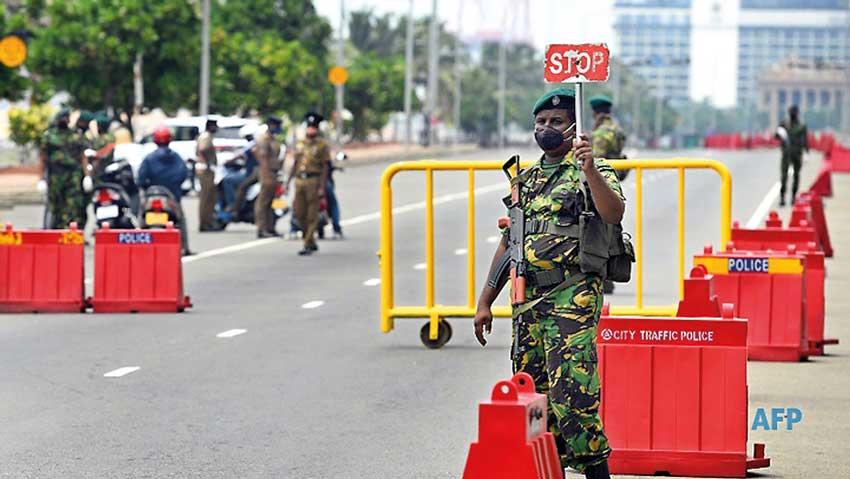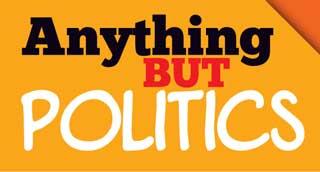04 Sep 2021 - {{hitsCtrl.values.hits}}

 Restriction of public mobility at national level is the ultimate choice mulled by the government. It remained hesitant to enforce such measures, but decided on them finally. Now, quarantine curfew is in force till next Monday. The national lockdown is pinching the government and the general public ferociously in economic terms. The economic situation, already battered by the previous restrictions, has been exacerbated now.
Restriction of public mobility at national level is the ultimate choice mulled by the government. It remained hesitant to enforce such measures, but decided on them finally. Now, quarantine curfew is in force till next Monday. The national lockdown is pinching the government and the general public ferociously in economic terms. The economic situation, already battered by the previous restrictions, has been exacerbated now.
 True, restrictions are primarily on public mobility. The government has ensured continuity of operations of the export industries despite the pandemic. Similarly, there is no bar on agricultural and fisheries activities. But, the service sector has been hampered.
True, restrictions are primarily on public mobility. The government has ensured continuity of operations of the export industries despite the pandemic. Similarly, there is no bar on agricultural and fisheries activities. But, the service sector has been hampered.
What is now visible is the accumulated impact of Covid-induced restrictions on economic activities in the country since the outbreak of the disease last year. Covid may not be the sole reason for the current economic downturn in Sri Lanka. Shortfalls in anti-pandemic operations and mismanagement of economy had also contributed. But, in the overall context, the pandemic led to the mess.
The health sector keeps exerting pressure on the government to extend the present lockdown till October to reduce transmissions and fatalities substantially. Some trade unions in the health sector even insist that even the current measures are not restrictive enough.
Empirical evidence suggests that the more the restrictions are imposed, better the pandemic is contained. Be that as it may, it is practically impossible for any country to be kept under lockdown for a prolonged period. As such, all over the world, the governments have taken measures to ensure that their economies are functioning while enforcing public health measures to contain the spread of the pandemic. Slowed, shrinking or negative economic growth means the rise of unemployment levels, surging cost of living, loss of income sources or livelihood opportunities.
Today, the Sri Lankan government has economically been pushed against the wall with the people feeling the pinch in terms of dwindling income, rising cost of living and reduced livelihood opportunities.
The country runs short of foreign exchange to finance imports, a crisis triggered by high debt repayment on the one hand and the collapse of the tourism industry in the wake of the pandemic in main on the other hand. Tourism is an industry that used to generate US$ 4.5 billion foreign exchange revenue to the country. The banking sector has run short of foreign currency inflows, and been restrained in the facilitation of importers in opening letters of credit as a result.
From an economic perspective, it makes sense that the government is hesitant for a further extension of the lockdown unless the pandemic has spun out of control. The prolonged lockdown will compound the situation. The curfew is affecting 4.2 million people involved in the informal sector of economy. It bears on inflation since the supply chain and trade activities are hampered.
In the event of further exacerbation of economic crisis, it will add to the burden of the government. It will have to introduce stimulus packages to revive the badly hit industries and relief packages for people losing or decreasing their sources of income amid the pandemic. Concessions given on earlier occasions have already strained the government’s budget.
But from the health perspective, curtailment of public mobility serves in the reduction of transmission, hospitalizations and fatalities. However, the pandemic response has to be viewed from both angles- economic and public health - as otherwise consequences will be long lasting and multipronged.
Already, the pandemic has created cracks at all levels of economic, social, and human systems. Micro and small businesses account for a large number of livelihood opportunities for people in Sri Lanka. The strict lockdowns and other containment measures have hit them the hardest rendering some of them even jobless at the moment.
The informal sector - construction, transport, hotels and restaurants, personal services, wholesale, and retail businesses- have been impacted with no sight of recovery in the foreseeable future. But, one cannot think of a trade-off – protection of economy over human lives or vice versa. People will be alarmed if there is a wave after wave of critically ill patients ending up in hospitals and dying.
The two aspects are linked. However, it is harder containing the pandemic once it has crossed a certain threshold. But, the government can leave no stone unturned in preventing it from becoming an outright catastrophe.
Vaccination is the most effective tool to fight the spread of the pandemic and reduce severity of the disease and deaths. Mass inculcation is in progress. But, only 22% of people had taken the full course of vaccines by last week. However, 54.3% of people had been administered with their first shots then. Covid cases are likely to keep rising until vaccination generates immune response in a sizeable number of the population.
When the Covid task force has its regular weekly meeting on Friday, the participants will take stock of things at the moment and decide whether to lift restrictions next Monday.
18 Apr 2024 2 hours ago
18 Apr 2024 2 hours ago
18 Apr 2024 3 hours ago
18 Apr 2024 4 hours ago
18 Apr 2024 5 hours ago